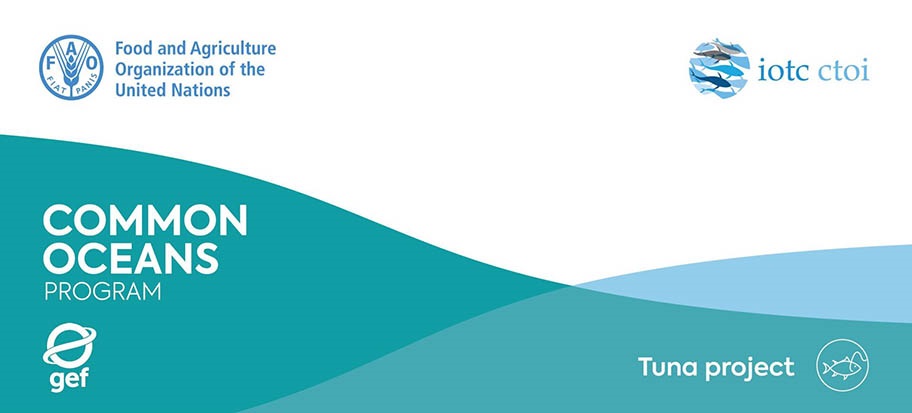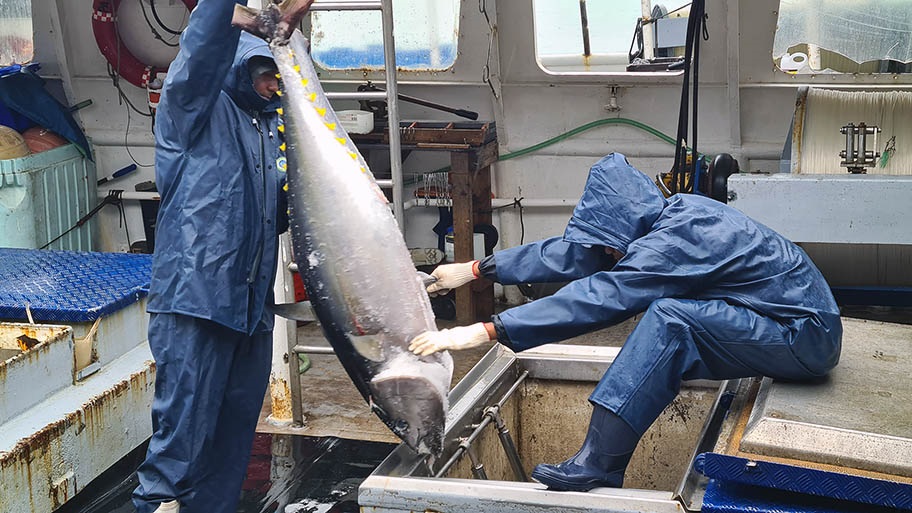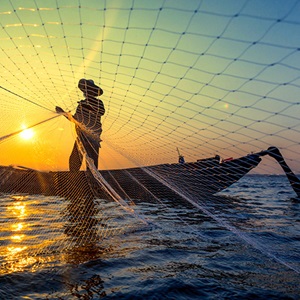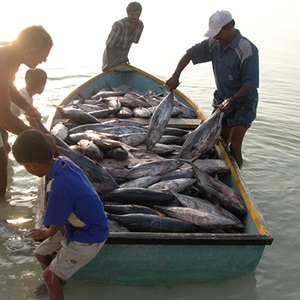The Marine Stewardship Council is supporting tuna fisheries in the Pacific region working towards sustainability as a partner of the Common Oceans Tuna project.

What is the project?
The Common Oceans Tuna Project builds a global partnership to achieve sustainable tuna fisheries by advancing responsible tuna fisheries management and biodiversity conservation in areas beyond national jurisdiction (ABNJ).
Funded by the Global Environment Facility (GEF) and led by the UN Food and Agriculture Organization (FAO), the project works in collaboration with five regional tuna fisheries management organisations, intergovernmental organisations, the private sector, and civil society.The MSC is working with the Common Ocean Tuna Project on strengthening the management of tuna fisheries with a focus on the Pacific region. 4 fisheries in 3 Pacific small island developing states (Pacific SIDS) have committed to improving their sustainable fishing practices.
Why this project?
Over half of the global tuna catch comes from the Western Central Pacific Ocean (ACIAR, 2023). Tuna is also the sole renewable resource that many countries in the Pacific region rely on, making tuna fisheries an important means of employment and contribution to their local GDP. Tuna is also one of the main sources of protein for the region, making it critical for the health and food security of many local communities.
With increasing tension between sustainability of the tuna stocks and sustainability of the tuna sector, developing the tuna sector through fisheries has become crucial, especially as the Pacific SIDS host some of the most abundant tuna fishing grounds in the Western Central Pacific Ocean. While many of the Pacific SIDS are already MSC engaged, there remains a handful of countries that are not. This project aims to engage these remaining countries with domestic tuna fisheries through this Pathway Project.
How does it work?
|
Stage 1: Mapping |
Stage 2: Pre-assessments |
Stage 3: Action plans |
|
| What? | Mapping fisheries in Pacific Small Island Developing States (PSIDS) | Assessing baseline performance and identifying areas for improvement | Developing action plans to improve fisheries' performance against the MSC indicators |
| How? | Building fisheries profiles through desktop research and stakeholder interviews | Conducting gap analysis of fisheries' performance against the MSC Standard | Agreeing on actions and stakeholders' responsibilities to address gaps defined in Stage 2 |
| By whom? | MSC | Accredited third-party assessor | Collaborative stakeholder effort |

Tongan tuna fishers on board © Pacific Sunrise Fishing
“By participating in the MSC Pathway Project, we have the opportunity to analyse our fishing practices and make improvements towards meeting the MSC Fisheries Standard. It will therefore be beneficial to our organisation to complete the pre-assessment to identify gaps to be addressed.”
Tongan fishing company


-500.tmb-thumb300.jpg?Status=Master&Culture=en&sfvrsn=651ac8e5_1)
